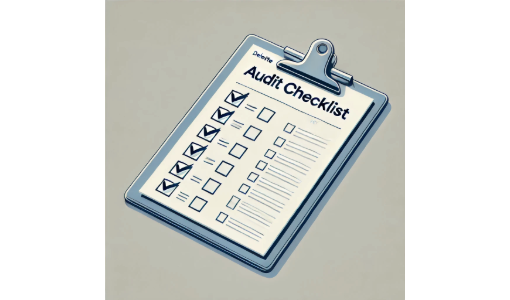SUMMARY: A nonprofit audit checklist helps organizations prepare for financial audits by organizing key documents such as financial statements, tax filings, and internal control policies. It ensures the audit process is smooth, promotes transparency, and reassures donors and grantors of responsible financial management.
What is a Nonprofit Audit Checklist?
For nonprofit organizations, transparency and accountability are essential. One way to maintain these is through regular audits. Nonprofit audits assess financial records, compliance with regulations, and internal controls. While audits can seem daunting, preparing in advance can streamline the process. This is where a nonprofit audit checklist comes in handy.
A nonprofit audit checklist is a comprehensive list of documents, reports, and information required for auditors to conduct their review. It ensures the audit team can efficiently assess financial performance, identify potential risks, and confirm the nonprofit is operating in accordance with its mission and legal obligations.
This post outlines the essentials of a nonprofit audit checklist and how it can help prepare your organization for a smooth and effective audit.
Why Do Nonprofits Need Audits?
1. Legal Compliance: Many nonprofits are required by law to conduct audits, especially if they receive federal funding or meet certain revenue thresholds.
2. Donor Confidence: An audit reassures donors that funds are being managed responsibly.
3. Grant Eligibility: Foundations and government entities may require audited financials as part of their grant application processes.
4. Improved Financial Practices: An audit highlights areas for improvement, helping nonprofits strengthen internal controls and financial management.
Nonprofit Audit Checklist: Key Areas to Cover
Here is a checklist to help your nonprofit prepare for an audit. Organizing these documents beforehand will make the process smoother and help the auditor work efficiently.
1. Organizational Documents
- Articles of Incorporation
- Bylaws
- IRS Determination Letter (501(c)(3) status)
- Board minutes for the audit period
- Mission statement
2. Financial Statements
- Statement of Financial Position (Balance Sheet)
- Statement of Activities (Income Statement)
- Statement of Functional Expenses
- Statement of Cash Flows
- Notes to the Financial Statements (explain significant accounting policies, etc.)
3. Banking and Investments
- Bank statements for all accounts
- Investment statements (if applicable)
- Bank reconciliations for the audit period
4. Revenue and Contributions
- Donation records (pledges, restricted, and unrestricted donations)
- Grant agreements and documentation
- Documentation for in-kind contributions
- Earned revenue (program service fees, memberships, etc.)
- Aged accounts receivable report
5. Expenses and Liabilities
- Accounts payable aging report
- Vendor invoices and receipts
- Payroll records (including IRS Form W-2s and 1099s)
- Lease agreements and other longterm obligations
- Credit card statements and documentation of expenses
- Reimbursement policies and documentation
6. Governance and Internal Controls
- Board-approved budgets and amendments
- Policies related to financial procedures (procurement, expense reimbursement, conflict of interest)
- Segregation of duties matrix (outlining roles in financial processes)
- Minutes of board meetings discussing financial oversight
7. Grants and Funding
- Grant award letters and funding agreements
- Reports to grantors (financial and narrative)
- Federal Single Audit Report (if applicable, for organizations receiving federal funding)
- Documentation on how grant funds are spent (e.g., restricted vs. unrestricted funds)
8. Tax Filings
- IRS Form 990 (most recent year)
- IRS Form 1099 (if issued)
- IRS Form W-2 (for employees)
- Payroll tax filings and supporting documents
- Sales tax returns, if applicable
9. Legal and Compliance
- Contracts and agreements (e.g., leases, service agreements)
- Insurance policies
- Regulatory filings (state charitable registration, if required)
- Litigation, if any (include correspondence and court documents)
10. Fixed Assets
- Asset listing (purchase dates, cost, depreciation)
- Documentation of major acquisitions and disposals
- Property titles and deeds (if applicable)
11. Other Documentation
- Any audits or reviews from previous years
- Management letters from previous auditors with responses or corrections implemented
- Communications with the IRS, grantors, or other oversight agencies
Preparing for a nonprofit audit doesn’t have to be overwhelming. With a detailed audit checklist, your organization can be audit-ready, ensuring financial transparency and accountability to your donors, grantors, and regulatory bodies. By gathering key financial documents, understanding internal processes, and addressing any areas of concern, you can help auditors focus on providing value through their recommendations and insights.
By following this checklist, nonprofits can approach the audit with confidence, knowing that they are prepared for a smooth and efficient process.

